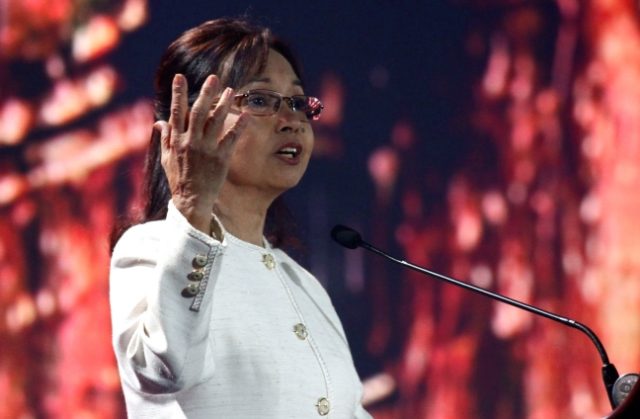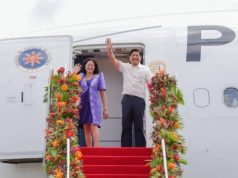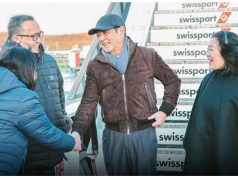
MANILA – As the Association of Southeast Asian Nations (ASEAN) celebrates its 50-year anniversary, marked by the Philippines’ hosting of the 31st ASEAN Summit this week, former President Gloria Macapagal-Arroyo suggests it can chart its future by transforming from consensus to majority rule when it comes to decision making.
She told the ASEAN Business and Investment Summit on Tuesday at the Solaire Resort and Casino in Parañaque City: “The future belongs to those nations that seek common ground to resolve common problems. This is true in virtually every aspect of our lives: economy, social justice, security.”
“It is asked: how are we going to decide looking for solutions to common problems in the next 50 years?” she continued. “Will we transform from consensus into majority rule? I think so. I think we really should.”
The Pampanga 2nd District Representative acknowledged that she found difficulty with consensus when she was head of state, where she “felt compelled to break away from consensus on Aung San Suu Kyi and support the United States instead.”
In January 2008, Arroyo declared the Philippines would not ratify the charter of the Association of Southeast Asian Nations “unless Myanmar releases freedom fighter Aung San Suu Kyi.”
Suu Kyi, who is in Manila for the present ASEAN Summit, was freed by the Burmese military in 2010 after being detained for 15 years. She presently faces the issue of the Rohingya minorities who fled Myanmar by the hundreds of thousands in what the United Nations has called “ethnic cleansing”.
“As ASEAN matures, and if it wants to be a global leader, the majority rule may arise in economic, social, and environmental concerns, where national interests often differ because of disparate geography, population, and economic and social conditions,” Arroyo explained.
“At the same time,” she continued, “majority rule does not mean the tyranny of numbers, for ASEAN has clout because it is 10 unified nations speaking and dealing with the world as one.”
She pointed out that, though ASEAN may be made up of small nations, it nevertheless commands respect because the countries know how to “advance and sacrifice for the common interest.”
“And that may well catapult ASEAN to global leadership among the panoply of nations far below the gaze of big power giants,” she said.
According to the ASEAN Charter, the principles of consensus, non-interference, sovereignty, equality, territorial integrity, and unity in diversity are of “fundamental importance” to member-states Brunei Darussalam, Cambodia, Indonesia, Laos, Malaysia, Myanmar, Philippines, Singapore, Thailand, and Vietnam.
If ASEAN is to succeed, said Arroyo, it is vital to achieve full integration by 2025.









